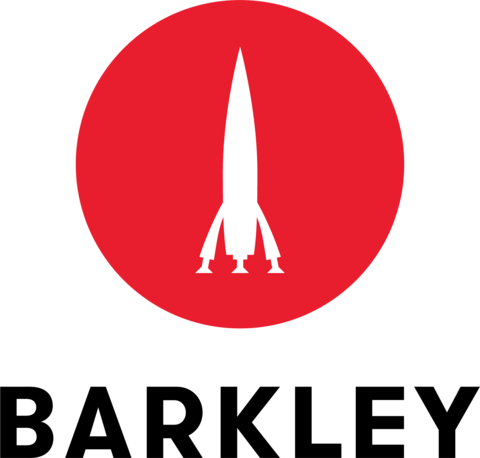Barkley 2023 State of Purpose: Despite ESG Backlash and Tighter Corporate Budgets, Research Validates Brands Must Prove Their Purpose with Sustainability
Barkley 2023 State of Purpose: Despite ESG Backlash and Tighter Corporate Budgets, Research Validates Brands Must Prove Their Purpose with Sustainability
Independent creative idea company released its annual report and a downloadable guide to help brands eliminate barriers and get started now
KANSAS CITY, Mo.--(BUSINESS WIRE)--Independent creative idea company Barkley released its annual State of Purpose Report. This year’s research includes a companion piece, Start Here: A Guide For Creating Sustainability Actions With Purpose, which serves as a step-by-step guide to help brands identify and map the material issues that can impact their business and further develop their sustainability strategy.
The guide is based on Barkley’s vision of a whole brand — a brand full of purpose and action that matches what it says and does internally with what it says and does externally. Whole brands understand that purpose, sustainability and issue-based initiatives are vital, strategic imperatives.
Proprietary research conducted for the report found that despite tighter corporate purse strings, purpose still matters to consumers. Results show that 94 percent of consumers say that supporting brands that care about environmental, social and governance (ESG) issues is as important as it was 12 months ago, despite inflation. Moreover, 71 percent of consumers say it’s difficult to know if a brand is acting ethically and 62 percent say they look for proof.
Whole Brand Thinking™, however, is not just about marketing and consumers, it’s about everything a company does, which means it’s just as important to know how employees feel. According to Barkley’s research, 78 percent of employees say it’s crucial for the values of the organization to align with their personal values and 50 percent say that working for a values-driven company brings out their best work. Employees are a brand’s best ambassadors, and the research found that they were 10X more likely to recommend a purpose-led company.
“After the events of the past several years, consumers want to live more sustainably and they expect brands to make this easier for them. They aren’t just looking at advertising to make their purchasing decisions, they want proof and evidence of impact,” explained Lindsey DeWitte, President of PR and EVP Purpose + Sustainability at Barkley. Remember, consumers have access to so much information today; they can quickly see how others perceive you. The good news is, developing a sustainability strategy simultaneously helps brands improve their reputation with consumers while also protecting the business from risk.
Start Here: A Guide For Creating Sustainability Actions With Purpose is designed to help business leaders identify and map the material issues that can impact their business and features nine sections of ideas that can supercharge organizations’ resiliency by crafting a purpose-led sustainability strategy. The guide focuses on materiality: the process of identifying, refining and assessing the environmental, social and governance topics that could impact an organization and its stakeholders. It then walks brands through four steps for mapping these material issues:
- Identify your most important topics: Define relevant issues for your organization and industry by reviewing Environment, Social, Governance (ESG) Frameworks and Benchmarking indices, found in the Appendix.
- Listen inside and outside your organization: Survey both internal and external stakeholders to assess their opinions on issues that impact your business. Think clients or customers, investors and shareholders, suppliers, government agencies and the wider community.
- Prioritize what matters: Plot external and internal views to define priorities, and cross-tabulate the results of both surveys in a matrix to create a priority list of issues to focus on.
- Build a strategy worth sharing: Define goals and objectives against priority issues and your brand’s purpose.
The report also shares case studies from Barkley clients including Fruit of the Loom, Inc. and Planet Fitness, as well as brands like IKEA and Smashbox to help show these steps in action.
In addition to its annual proprietary research, Barkley has released a companion guide for brands and business leaders just beginning their sustainability journeys, with clear and actionable insights that will lead them through the process and on the path to creating impact.
“Developing a sustainability strategy is how you set yourself up to engage with key audiences across your brand and build resilience into your business,” said Pip Cross, sustainability lead at Barkley. “We’re so excited to offer brands this quick guide to jumpstart their own sustainability strategy. We use these same prompts, ideas, tips and tricks in our own work because we know the more your purpose powers your commitments to people, planet and community, the more inspired your brand culture is to deliver profit and continuous impact.”
About Barkley:
Barkley is an independent creative idea company that builds whole brands for modern consumers, employees and all stakeholders. We do this through three idea centers: strategy, design and activation. As a Certified B Corporation™, we believe all brands, including ours, can be a force for good in the world. Learn more about Barkley at barkleyus.com and follow Barkley on LinkedIn.
Contacts
Mariah Haberman
608-354-7208
mhaberman@barkleyus.com
